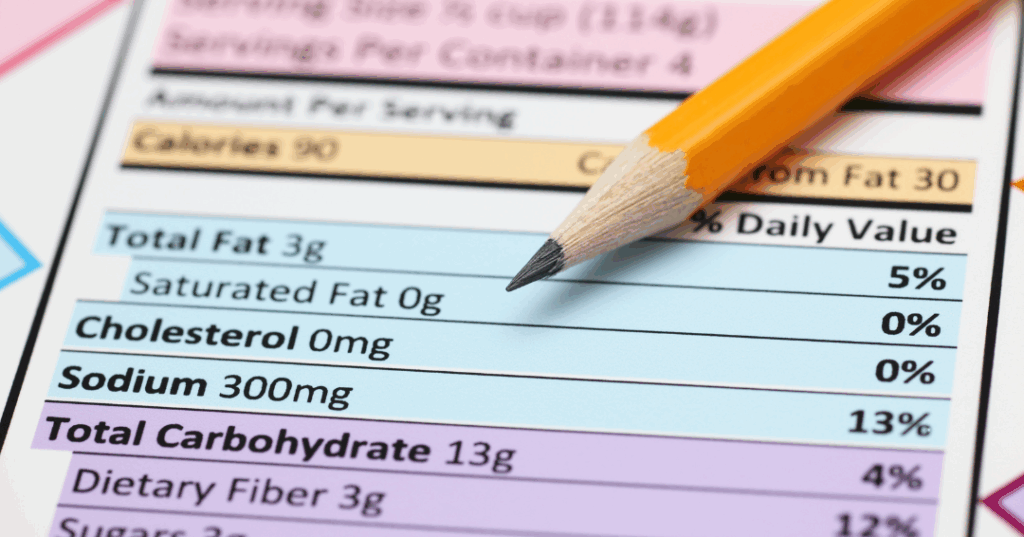Adequate nutrients and water are vital for the functioning of all your organs, and it is a huge part of keeping your immune system functioning at an optimal level. Think of your immune system as your “personal bodyguards”, protecting you against infections and other harmful elements.
As we age, our immune system becomes less effective at tackling infections and protecting us against harmful elements as its responses slow down. At the same time, the ageing immune system sometimes fail to resolve an inflammatory process, causing an ongoing, low-grade systemic inflammation. These changes in immune function may contribute to the greater susceptibility of seniors to some infections and inflammatory diseases like cardiovascular, cancer, dementia, and even Type 2 diabetes.
The good news is that adopting the right diet, with moderate physical activities, may help a person maintain healthy immunity into older age.
An optimal immune system is a well-balanced immune system. It is not overactive or underactive. Immune overactivity can result in health conditions like allergies, sensitivities/intolerances, and autoimmune disorders. An underactive immune system is “overwhelmed”, “weakened”, and unable to protect the body from invading pathogens and leaves people vulnerable to infections.
Healthy ways to keep a balanced immune system
Your best line of defense is a healthy lifestyle, and this includes adequate nutrients, hydration, and sleep. A healthy immune system needs good, regular nourishment. It has been long recognised that people who live in poverty and are malnourished are more vulnerable to infectious diseases.
Here are seven (7) dietary considerations to a healthier immune system
1. Take steps to avoid infections
Wash your hands regularly. Wash your hands before handling food and eating.
2. Eat a diet that is high in fresh, minimally processed food
Most foods that we eat today has gone through some degree of processing. Processing can be minimal like freezing freshly caught fish and seafoods, frozen vegetables, fruits and berries, and bottled/canned whole vegetables without added salt, sugar, and flavourings. These are all good.
Some foods have gone through a high degree of processing – ultra-processed foods. These ultra-processed foods tend to be high in sugar, salt, trans fats and artificial flavourings. Examples of ultra-processed foods are crackers and chips, instant cereals, instant noodles, instant soups, packaged bread and buns, processed cheese slices, flavoured yogurt drinks, processed meat products like “hot dogs”, nuggets and processed ham slices.
As much as possible, avoid these ultra-processed foods and choose the less processed options. The more processed a food is, the less micronutrients the food will contain. Micronutrients are vitamins and minerals. Micronutrient deficiencies like Vitamin B6, Vitamin C and Zinc often result in a suppressed immune system and increased susceptibility to infections.
3. Minimise consumption of ultra-processed foods
Not only do ultra-processed foods contain less nutrients, they also contain high amount of food additives, artificial flavourings and colourings too. Long term, constant exposure to these food chemicals can result in chronic inflammation, overactive or underactive immune system.
4. Limit intake of foods and beverages that are high in sugar
Limit intake of foods and beverages that are high in sugar like soft drinks, cakes, cookies, ice creams, yogurt drinks and others. Studies have linked high blood sugar levels to an impaired immune response in people with and without diabetes. (1,2)
5. If you drink alcohol
Drink in moderation, which is about 1 glass of wine, 1 can of 330ml beer or 1 shot of spirits for women. For men, the amount is about 2 glasses of wine, 660ml beer or 2 shots of spirits. Moderate consumption of alcohol has no effect on the immune system of healthy individuals, but overconsumption weakens both the innate and adaptive immune system, and increases susceptibility to infections. (3,4)
6. Eat adequate protein
Protein malnutrition has been known to impair immune function and increase the susceptibility of animals and humans to infectious disease. It is recommended to consume about 1g of protein (or more for active individuals) for every kg of body weight. (5,6). High protein foods include eggs, seafoods, chicken, all types of red and white meat. For vegetarians, legumes, beans and bean-based products like tofu and tempeh are good sources of protein.
7. Make hydration a priority!
Water carries nutrients and other important components to the immune system and helps to remove metabolic waste from our organs daily. If not flushed out, these metabolic wastes have the potential to become toxic and weaken the immune system. It is recommended to have at least 1.5 litres of fluid daily. Fluid intake can be plain water, herbal tea, vegetable juices or from water-rich foods like watermelon and broth. Dehydration is common among seniors. Scheduling frequent small drinks and incorporating water-rich foods into their snacks, can help to improve overall fluid intake.

Ms Katherine Khoo
Nutritional Therapist
Aman Wellness Pte Ltd
References:
1. Acute hyperglycemia impairs IL‐6 expression in humans. Immun Inflamm Dis. 2016 Mar; 4(1): 91–97. Published online 2016 Jan 19. doi: 10.1002/iid3.97.
2. Type 2 Diabetes and its Impact on the Immune System. Curr Diabetes Rev 2020;16(5):442-449. doi: 10.2174/1573399815666191024085838.
3. Influence of alcohol consumption on immunological status: a review. Eur J Clin Nutr. 2002 Aug;56 Suppl 3:S50-3. doi: 10.1038/sj.ejcn.1601486.
4. Alcohol and the Immune System. Alcohol Res. 2015; 37(2): 153–155. PMCID: PMC4590612.
5. Amino acids and immune function. Br J Nutr. 2007 Aug;98(2):237-52. doi: 10.1017/S000711450769936X. Epub 2007 Apr 3
6. Effect of dietary protein and amino acids on immune function. Crit Care Med. 1990 Feb;18(2 Suppl):S86-93.
All information is accurate at the time of publishing.

